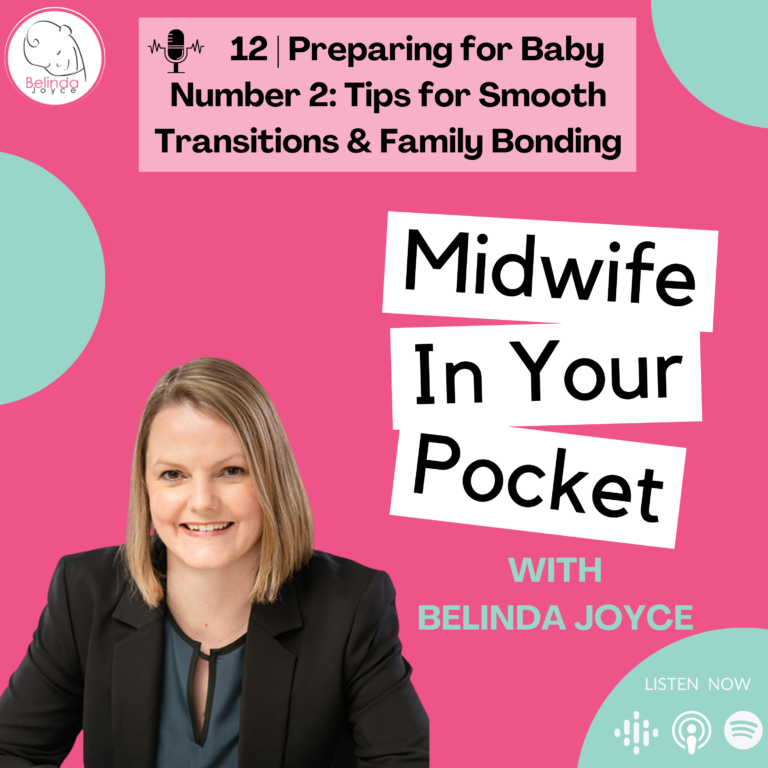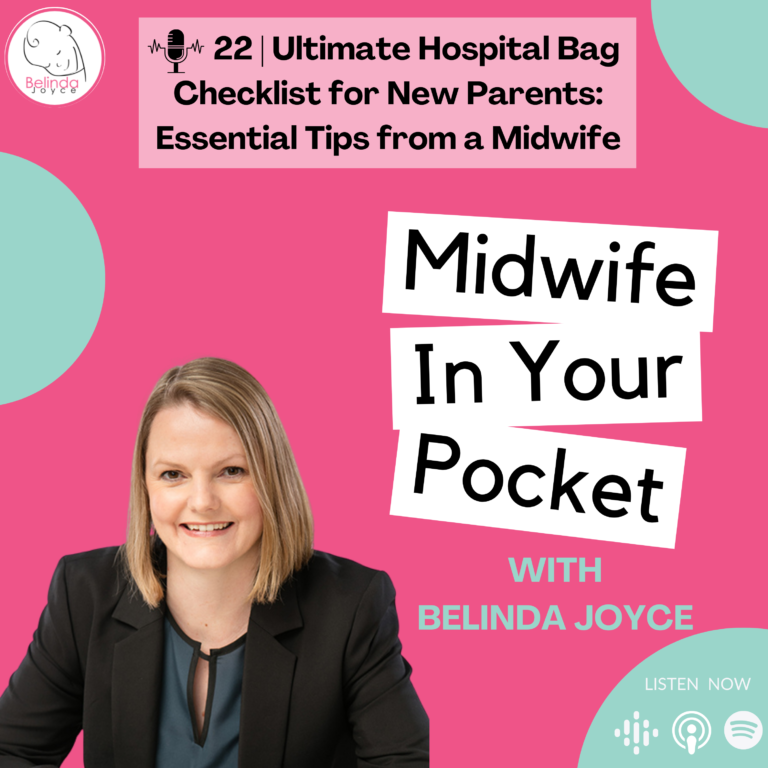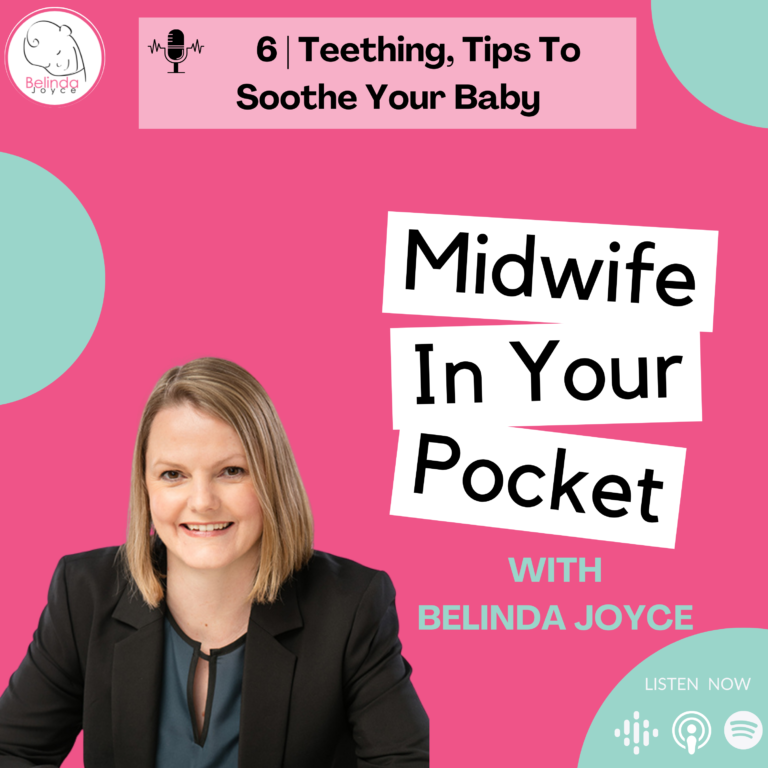Co-sleeping With Your Baby
Co-sleeping with your baby:
Co-sleeping is when your baby sleeps in bed with you. Whatever the reason for your baby being in your bed, it is important to know how to do this more safely.
Even though Red Nose and other sleep experts recommend that your baby sleep in a full size cot in your room for the first 6- 12 months, realistically we know that most baby’s co-sleep at some stage and for a variety of reasons.
The recommendations are based on many years of research and have over time significantly reduced the incidence of sudden unexpected death in infancy (SUDI) such as a fatal sleep accident or Sudden Infant Death Syndrome (SIDS).
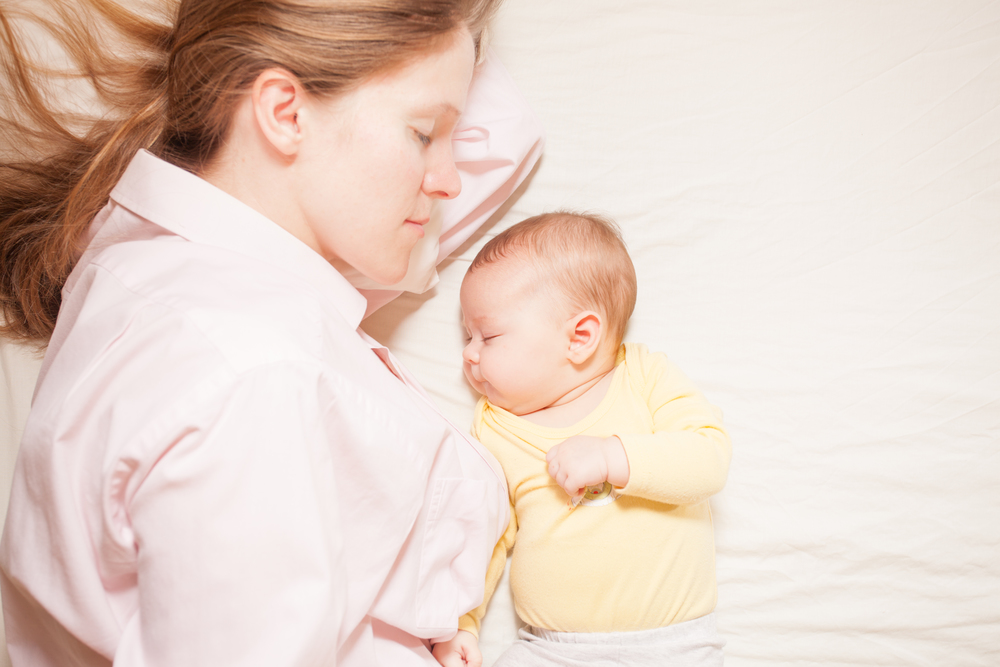
DISCOVER HOW TO SURVIVE & ENJOY YOUR BABY!
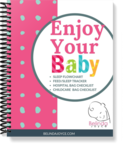 The pack is full of checklists and printables to help you improve sleep challenges with our flowchart, decide what to take to hospital, what equipment is essential, what to put in your nappy bag and so much more
The pack is full of checklists and printables to help you improve sleep challenges with our flowchart, decide what to take to hospital, what equipment is essential, what to put in your nappy bag and so much more
However many parents choose to sleep with their baby for many different reasons:
- cultural reasons
- because they enjoy it
- feel it improves the bonding relationship and makes their baby feel more secure
- desperation for sleep themselves (I know I have been there too)
- easier to breastfeed overnight
- and many more…
Whatever the reason there are some guidelines which can reduce the risks involved:
- Always sleep your baby on their back.
- Reduce bedding around your baby to a simple blanket rather than a doona or use a baby swaddle or sleeping bag.
- Keep your pillow away from baby.
- Bed must be firm, no water beds of woollen underlays
- Place baby on the outside of the bed, not between two adults where bedding is more likely to cover her and get too hot.
- Put a barrier on the side of the bed so baby can’t roll out.
Co-sleeping due to desperation:
If choosing to sleep with your baby out of desperation because they are unsettled then the concern is that you may not have set up your bed in the safest manner, please try to use the same principles. The other problem with this is that your baby will learn to sleep with you and it may be difficult to transition them back to sleeping in their cot.
If you are only co-sleeping because of exhaustion it is best to look at some other settling strategies to help your baby learn to sleep in their cot. Talk to your child health nurse or other health professional about options.
Often parents find it hard to agree on sleep methods for their baby, it is important to keep the lines of communication open. and look at all the options.

It is best not to co-sleep in these situations due to an increased risks of SUDI (Sudden unexpected death in infancy):
- If either parent is a smoker
- If either parent is affected by alcohol or drugs, particularly sedating drugs
- If your baby was born premature or small for their gestational age
- If you are falling asleep on a couch or chair
Sleep is a common challenge for the majority of parents and baby’s at some time or other throughout the first few years. Please ask for help if it is becoming a problem for you. The earlier you intervene the quicker the problem is solved for you and your baby.
Remember even a baby who sleeps well most of the time will have disturbed sleep when they have a cold virus or is teething but it will not last forever. Try to go back to their normal pattern as soon as possible so that habits don’t form.
Remember that some baby’s sleep better than others just as some adults sleep better than others. Some methods work better for some baby’s and family’s and sometimes you just need to cut yourself some slack, this period will not last forever, you will get through this but you don’t have to do it on your own.
If co-sleeping is working well for you and your baby, there is no need to change this, consider the safest way to continue.
See ‘Helpful Resources’ for more help and assistance. The book ‘Survive and Enjoy Your Baby‘ has more detailed information around sleep and settling. For further reading on co-sleeping with evidence see the Red Nose website.


